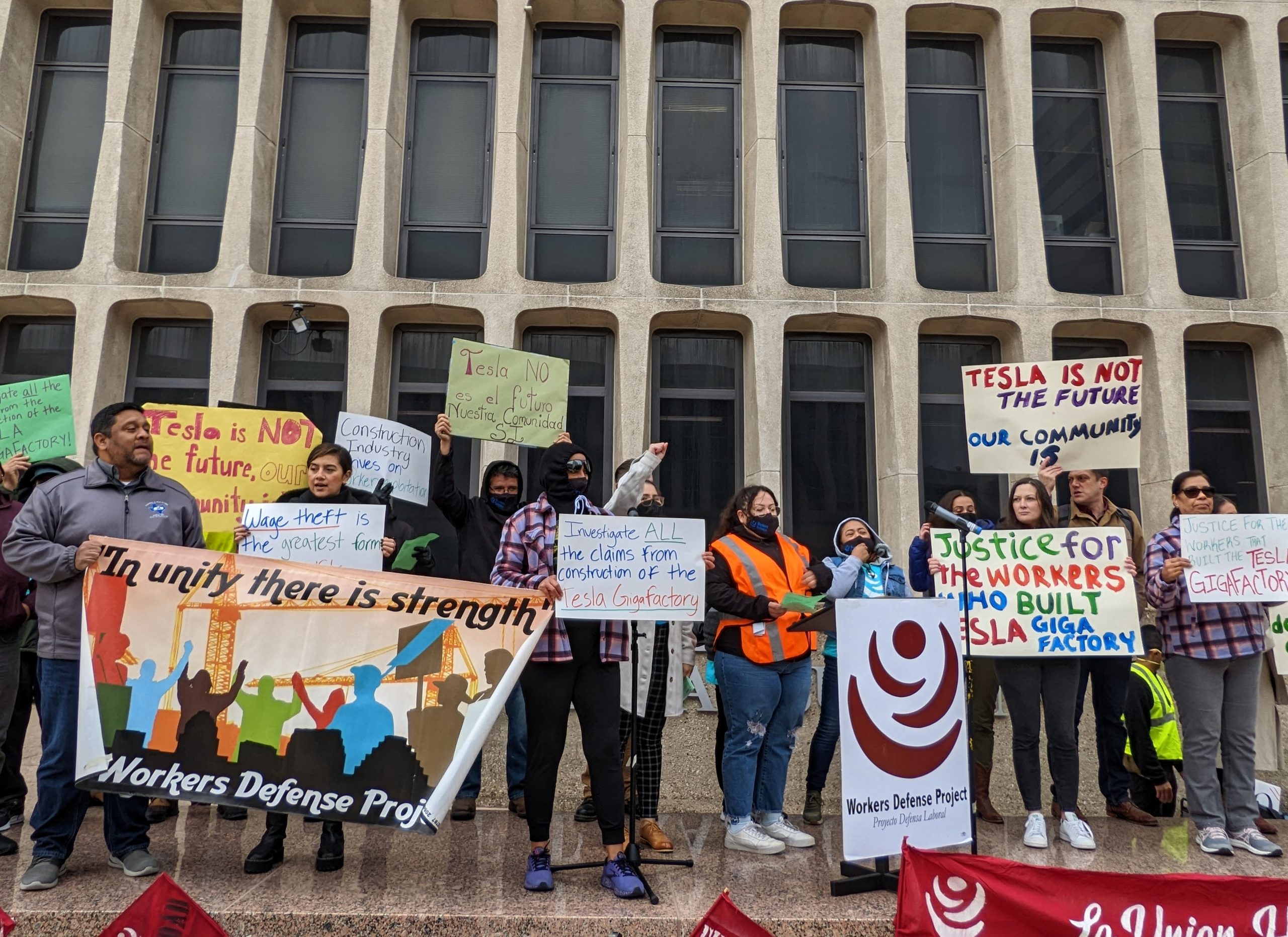
El Paso Becomes Second City to Indict Employer for Wage Theft

Above: Workers Defense Project staff and supporters perform inside Capitol rotunda on Workers’ Memorial Day to commemorate workers who have died on the job and push bills that would improve conditions for workers in Texas.
On Thursday, for the first time in El Paso history an employer was arrested and indicted for robbing a worker of his wages.
In a state that constantly (and loudly) touts its business-friendly attitude, workers almost never reap the benefits. Construction workers and other low-income workers suffer some of the worst conditions in the country, with some of the worst pay.
In 2011, Austin-based Workers Defense Project successfully lobbied for a bill that amended the state’s wage theft code, authored by Senator Jose Rodriguez (D-El Paso), that made it harder for employers to get away with stealing workers’ wages. The amendment to the Texas criminal code closed a loophole which allowed employers to get away with paying employees only partially for their work without facing criminal charges. El Paso has become the first city outside of Austin to indict an employer for stealing wages.
“It’s huge because we’re finally treating the stealing of someone’s wages the same way we treat someone stealing from Target or Albertsons or [any] store,” says Jed Untereker, an attorney with Paso del Norte Civil Rights Project who represented the employee. “The consequence for an unscrupulous employer is you’re going to be thrown in jail if you don’t pay your workers what they’re owed.”
In El Paso, workers advocates were able to get the case to the indictment stage because of the El Paso Wage Theft Task Force created in 2011. So far, El Paso is the only city in Texas with an official wage theft task force, which includes the El Paso Police Department, the El Paso Sheriff’s Office, El Paso County and District Attorneys and the Labor Justice Committee.
The Paso del Norte Civil Rights Project is also a member of the task force, as is Sen. Rodriguez, the author of the bill. “While implementation of SB 1024 continues to be a challenge, we are making progress,” Rodriguez said in a statement. “Because non-payment of wages is especially common for low wage workers, it is a major quality-of-life issue. Working families with no margin for temporary hardship cannot afford to miss even one paycheck.”
Despite the tougher criminal code, worker advocates across the state are having a hard time getting local police departments and district attorneys to prosecute wage theft cases. It’s difficult to get police departments to file reports and even harder to get district attorneys to prosecute the cases, which they consider low priority.
In Austin, police officers have worked with Workers Defense to make several arrests and at least three indictments in the past few years, Workplace Justice Coordinator Patricia Zavala says. Some employers were even indicted before the amendment passed. But that was a result of the collaboration between Workers Defense, APD and the county attorney. In other cities, workers have had to resort to the civil courts. But most victims don’t have the resources to go to court, so they simply lose their wages, often losing weeks’ or months’ worth of work.
In the El Paso case, the owner of a local roofing company failed to pay an employee more than $2,000 for replacing a roof. The police talked to the homeowner, who said she had already paid the roofing company owner. When the worker confronted his boss, the man said he “didn’t want to” pay him, according to a press release.
Workers Defense is now hoping to see similar successes in Dallas. Emily Timm of Workers Defense says the group’s newly opened Dallas branch is trying to work with local law enforcement and the county and district attorneys to get wage theft cases prosecuted like in Austin and now El Paso. She says labor groups along the border are doing the same thing. Worker advocacy groups are also lobbying for a variety of bills currently making their way through the Texas Legislature this session. The bills mostly govern wage theft, payroll fraud and workers’ compensation, but so far none have made it to the House or Senate floors for debate.


